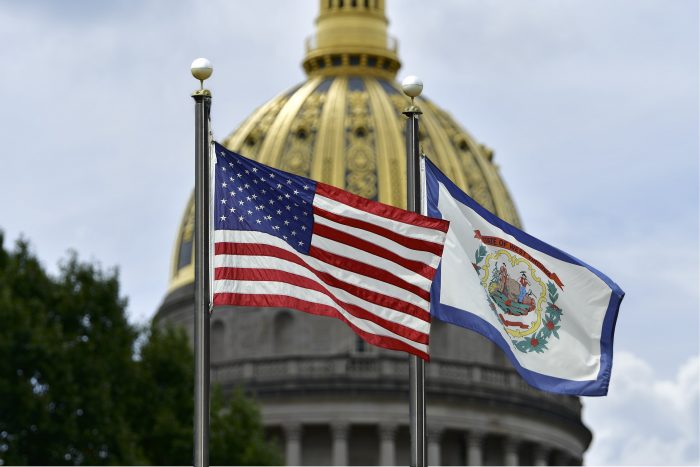West Virginia boasts one of the highest numbers of veterans per capita in the nation, as well as some prestigious military “firsts” — from Gen. Chuck Yeager, the first person to fly faster than the speed of sound, to Col. George “Spanky” Roberts, a Tuskegee Airman and the first African-American military pilot from West Virginia.
Visit some of these fascinating sites in West Virginia to learn more about the brave men and women who served.
The City of Nitro is described as “a living memorial to World War I.” That’s because it owes its birth to the war effort. In 1917, the War Department identified land along the Kanawha River west of Charleston as a prime location for one of three explosives plants to be built in the United States. Construction of Explosives Plant “C” brought in more than 100,000 workers while as many as 60 pre-fabricated homes sprang up in the area every day. In 2017, Nitro celebrated its centennial with a parade and the unveiling of a WWI doughboy statue. The city also maintains the Nitro World War I Museum, featuring exhibits on town and school history and the military.
The West Virginia Veterans Memorial at the State Capitol Complex honors more than 10,000 West Virginians from four wars who made the ultimate sacrifice. The monument, dedicated in 1995, features sculptures of a World War I doughboy, World War II sailor, Korean War aviator and Vietnam Marine. In 2011 a statue honoring the women who have served was unveiled across from the Veterans Memorial. Representing all branches of service in the recent conflicts with Iraq and Afghanistan, she stands proudly holding the state flag of West Virginia. The state’s military history is one of the star attractions at the West Virginia State Museum at the Culture Center, which features a central show path winding through 26 discovery rooms.
One of the most popular tourist destinations in West Virginia, the towering fins of Seneca Rocks served as training grounds during World War II for an elite cadre known as the Mountain Training Group, also called ski troopers or snow soldiers. The area was chosen for its rugged isolation and similarities to terrain found in northern Italy. The Seneca Rocks Discovery Center (open seasonally) runs a video detailing the exciting training that took place here at the Army’s only low-altitude assault training school.
Housed in the historic Weston Colored School, the Mountaineer Military Museum in Weston offers an extensive display, including vintage photographs, uniforms, artifacts and dioramas. The museum’s curators have recently added more than 18 new exhibits featuring personal and historical items from the Korean, Vietnam and Civil War as well as a reflection room to honor the fallen.
The Battle of Droop Mountain, fought Nov. 6, 1863, in Pocahontas County, was one of the most important Civil War battles in West Virginia. On this mountain, Union forces under Gen. William W. Averell and Gen. Alfred N. Duffie clashed with Confederate troops led by Brig. Gen. John Echols. The decisive Union victory ended the South’s efforts to control the new state. The site is preserved at Droop Mountain Battlefield State Park, dedicated in 1928 and later transformed into a historical and outdoor recreation area by the Civilian Conservation Corps. The park, a popular spot for picnics, is notable for its observation tower that overlooks the scenic Greenbrier Valley. The Battle of Droop Mountain is re-enacted here on even-numbered years.
West Virginia State Parks and Forests Veterans Discount
Honor your favorite veteran with an overnight stay at West Virginia State Parks and Forests! Now through Nov. 16, the West Virginia State Parks system is offering a special discount to active military and veterans. The offer is good for 50 percent off regular lodge and cabin rates at select parks and forests. For more information visit https://bit.ly/2hlT4jB.
How many places have you visited?

